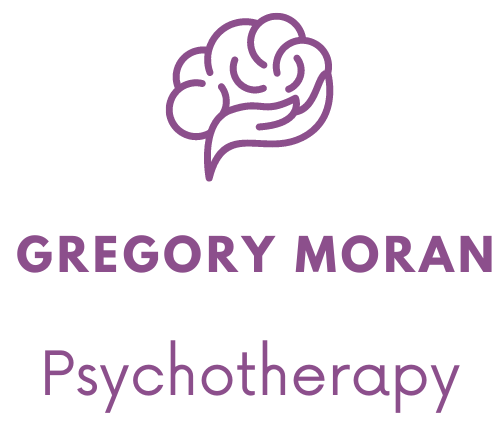Depression Therapy in Clare
“It is joy to be hidden, and disaster not to be found.”
Donald Winnicott
What is depression?
Depression is a mental health disorder characterized by persistent feelings of sadness, hopelessness, and loss of interest in activities that one used to enjoy. It affects how a person thinks, feels, and handles daily activities, including sleeping, eating, and working. Depression can vary in severity and duration, ranging from mild to severe and lasting for weeks, months, or even years if left untreated.
Some common symptoms of depression include:
1. Persistent sadness or emptiness
2. Loss of interest or pleasure in activities once enjoyed
3. Changes in appetite or weight
4. Difficulty sleeping or sleeping too much
5. Fatigue or lack of energy
6. Feelings of worthlessness or excessive guilt
7. Difficulty concentrating or making decisions
8. Thoughts of death or suicide
Depression can be caused by a combination of genetic, biological, environmental, and psychological factors. It may occur as a result of a specific life event, such as a loss or trauma, or it may develop without any identifiable trigger. Treatment for depression often involves a combination of therapy, medication, and lifestyle changes. It’s essential for individuals experiencing symptoms of depression to seek help from a mental health professional for an accurate diagnosis and appropriate treatment.
What can an individual suffering from depression expect from therapy?
Individuals with depression can expect various outcomes from therapy, depending on factors such as the type of therapy they receive, their individual needs, and their commitment to the therapeutic process. Here are some general expectations:
1. Initial Assessment: At the beginning of therapy, individuals can expect to undergo an initial assessment, during which the therapist gathers information about their symptoms, personal history, and goals for therapy. This assessment helps the therapist understand the individual’s unique situation and tailor the treatment plan accordingly.
2. Collaborative Goal-Setting: Therapy typically involves collaborative goal-setting between the individual and the therapist. Together, they identify specific areas of concern and establish realistic and achievable goals for therapy. These goals may include reducing symptoms of depression, improving coping skills, enhancing self-esteem, or addressing underlying issues contributing to depression.
3. Regular Sessions: Individuals can expect to attend therapy sessions regularly, typically on a weekly or bi-weekly basis, although the frequency may vary depending on the individual’s needs and the therapist’s recommendations. Consistent attendance and active participation in therapy sessions are essential for maximizing the benefits of treatment.
4. Emotional Support: Therapy provides a safe and supportive environment for individuals to express their emotions, whether it’s sadness, anger, fear, or frustration. Therapists offer empathy, validation, and non-judgmental listening, helping individuals feel understood and supported as they navigate their experiences with depression.
5. Skill-Building: Therapy focuses on equipping individuals with practical coping skills to manage symptoms of depression effectively. These skills may include relaxation techniques, stress management strategies, problem-solving skills, assertiveness training, or social skills training. Through practice and reinforcement in therapy sessions, individuals can develop a toolkit of skills to use in their daily lives.
7. Progress Monitoring: Throughout therapy, individuals can expect their progress to be regularly monitored and evaluated by the therapist. Progress may be assessed through self-report measures, symptom tracking, or observations of changes in behavior and mood. Adjustments to the treatment plan may be made as needed to ensure that therapy remains effective and aligned with the individual’s goals.
Overall, individuals with depression can expect therapy to provide a structured and supportive framework for addressing their symptoms, gaining insight into their experiences, and developing skills to improve their overall well-being. Therapy offers a collaborative and personalized approach to treatment, empowering individuals to take an active role in their recovery journey.
What therapeutic approach can help treat depression?
Psychodynamic therapy can be effective for treating depression, particularly for individuals who may benefit from exploring deeper emotional issues and unresolved conflicts that contribute to their depressive symptoms.
Here are some ways in which psychodynamic therapy can be beneficial for depression:
Exploration of Underlying Issues
Psychodynamic therapy focuses on uncovering unconscious conflicts, unresolved emotions, and past experiences that contribute to current symptoms. By exploring these underlying issues, individuals gain insight into the root causes of their depression and develop a deeper understanding of themselves.
Emotional Processing
Depression often involves suppressed or unexpressed emotions, such as grief, anger, or shame. Psychodynamic therapy provides a safe and supportive environment for individuals to express and process these emotions, leading to emotional relief and catharsis.
Development of Coping Strategies
Through the therapeutic relationship, individuals learn adaptive coping strategies for managing depressive symptoms and challenging situations in their lives. This may include developing healthier ways of relating to oneself and others, improving self-esteem, and enhancing resilience.
Improvement in Relationships
Psychodynamic therapy can help individuals recognize how their interpersonal patterns and attachment experiences contribute to their depression. By exploring and understanding these dynamics, individuals can improve their relationships, develop healthier boundaries, and receive support from others, which can alleviate depressive symptoms.
Enhancement of Self-Understanding
Psychodynamic therapy fosters self-reflection and self-awareness, allowing individuals to gain a deeper understanding of their thoughts, feelings, and behaviours. This increased self-awareness can help individuals identify maladaptive patterns and make positive changes in their lives to alleviate depression.
Ultimately, the choice of therapy is on the individual’s preferences, needs, and therapeutic goals.
